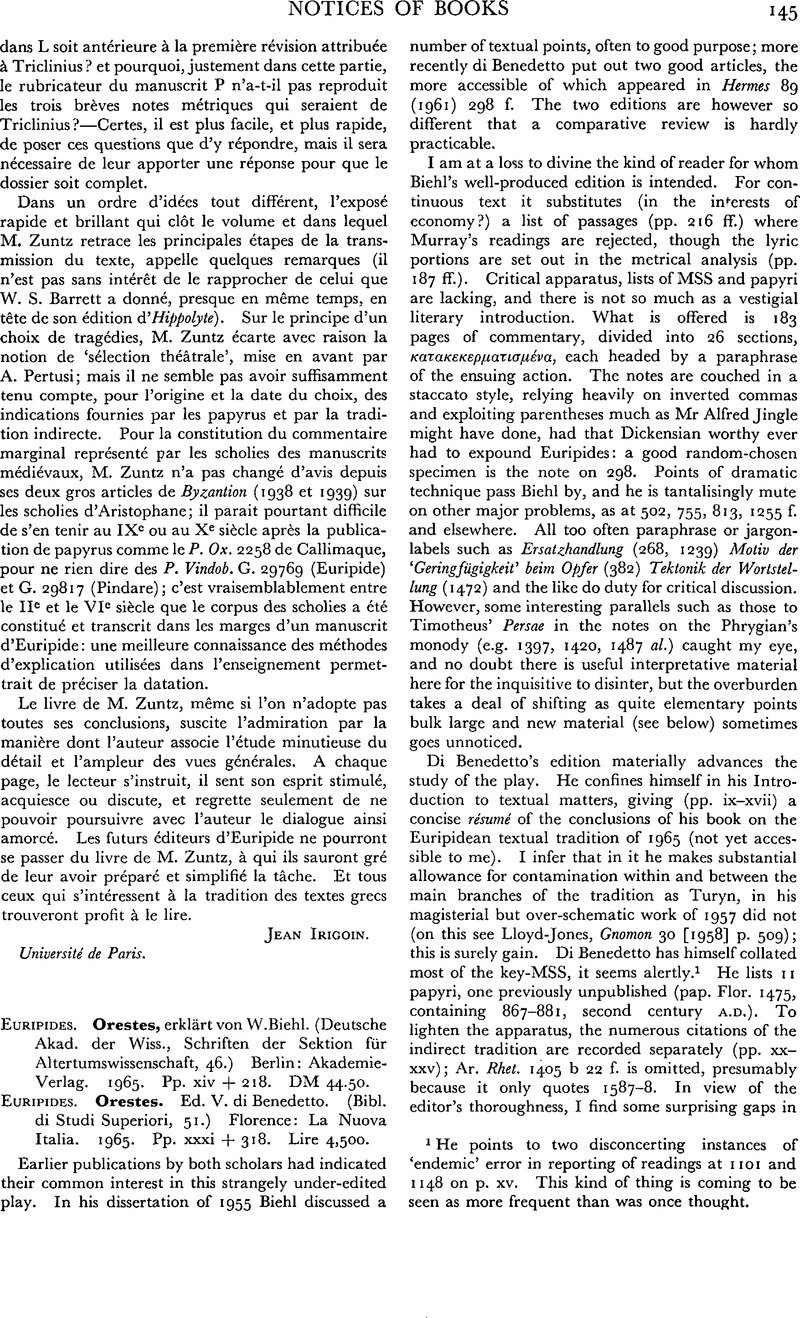No CrossRef data available.
Article contents
Euripides. Orestes, erklärt von W.Biehl. (Deutsche Akad. der Wiss., Schriften der Sektion für Altertumswissenschaft, 46.) Berlin: Akademie-Verlag. 1965. Pp. xiv + 218. DM 44.50. - Euripides. Orestes. Ed. V. di Benedetto. (Bibl. di Studi Superiori, 51.) Florence: La Nuova Italia. 1965. Pp. xxxi + 318. Lire 4,500.
Published online by Cambridge University Press: 23 December 2013
Abstract

- Type
- Notices of Books
- Information
- Copyright
- Copyright © The Society for the Promotion of Hellenic Studies 1967
References
page 145 note 1 He points to two disconcerting instances of ‘endemic’ error in reporting of readings at 1101 and 1148 on p. xv. This kind of thing is coming to be seen as more frequent than was once thought.
page 146 note 1 I had taken the passage so, before I found that Krieg (p. 27) had anticipated me. First prize for reading into Euripides' words at this point what simply is not there must go to Pohlenz (Gr. Trag. I2 p. 419), with others who shall be nameless not far behind.
page 146 note 2 An interesting observation on Orestes' pietas lurks in di Benedetto's note on 418–20 (p. 91).
page 146 note 3 Any future treatment of the moral issues of the Orestes-saga should take account of the observations of Professor D. Daube in his Oxford Inaugural Lecture of 1956, The Defence of Superior Orders in Roman Law.
page 146 note 1 On 3; 5 (cf. 8); 17; 20; 21; 22; 25; 27; 39; 40; 42; 45; 47.
page 146 note 2 Here reference to Dietrich, A.'s article on Sleepscenes in Greek Tragedy in Rh. Mus. 46 (1891) pp. 25 ff.Google Scholar might have been in point.
page 147 note 1 Incidentally, while strophe and antistrophe are often quite widely separated in Comedy, only Hipp. 362 f.∼668 f. provide a parallel to this in Tragedy: see Barrett, p. 224.




